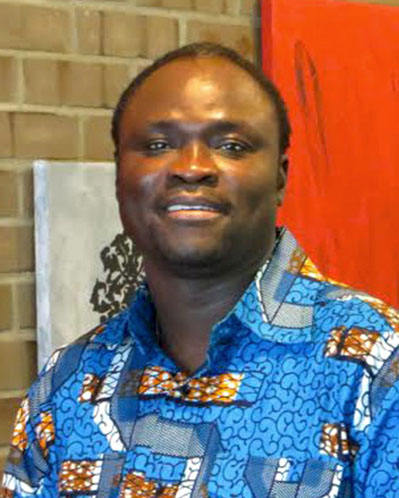
Jean-Baptiste Sourou is Professor of Communications and the founder and president of the Center for Documentation and Research on Art and Social Sciences (CeDReS Project) in Benin Republic. He also teaches African Cultures and Migrations in universities and schools in Italy. He holds a BA, MA, and PhD in Social Communications and Social Sciences from the Gregorian University. He also has a BA and MA in Theology from universities in Padua and Rome. He is an international media practitioner, and won The International Award of Solidarity with Refugees at the 2013 International Journalism and Media Awards, and the Award of the Best Writer/Author at the 2013 Africa-Italy Excellence Awards. Prof. Sourou’s research interests center on rites, dance, and music, and the relationship between media, culture, and religion, especially in Africa. His research has earned him international honours such as the 2012 African Studies Association (ASA) Presidential Fellowship, and the 2007 International Award in Media, Religion, and Culture. He also researches African immigration through the Mediterranean Sea to Europe. He has founded two associations, Cedres NGO in Benin and Il Cedro in Italy, to promote education in Africa as a solution to the endless flow of African forced migrations towards Europe. He has published writings on African cultural, social, and religious life. He is a member of the International Society in Media, Religion, and Culture, and Consultant for the Observatory of Media and Religion in Canada.
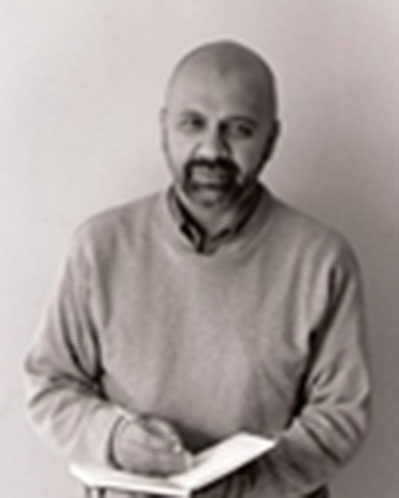
Muhammed Haron is a South African based in the Department of Theology & Religious Studies at the University of Botswana where he teaches religious studies courses as an associate professor. He is also an associate researcher in the ‘Study of Islam’ program at the University of Johannesburg (UJ) as well as an executive member of the Centre for Contemporary Islam at the University of Cape Town (UCT). He authored The Dynamics of Christian-Muslim Relations (2006), edited Going Forward: South African-Malaysia Relations (2008), compiled/edited South Africa’s Muslims: Annotated Bibliography (1997), and South Africa’s Truth and Reconciliation Commission: An Annotated Bibliography (2009), co-authored with Prof. Yasien Mohamed First Steps in Arabic Grammar (2007), and Second Steps in Arabic Grammar (2009), and co-edited with Prof. Dangor Islamic Civlization in Southern Africa (2009). He edited a special issue on ‘Arabo-Islamic Manuscripts [in Africa]’ for Tydksrif vir Letterkunde (University of Pretoria 2008), and a special issue on ‘Muslims in Southern Africa’ for BOLESWA: Journal of Theology, Religion and Philosophy (University of Botswana 4:1, 2012). He co-edited Muslim Higher Education in Postcolonial Africa (London: Palgrave publishers, forthcoming).
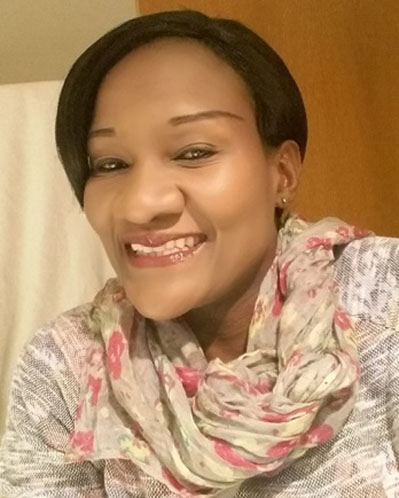
Dr. Mmapula Diana Kebaneilwe is a Womanist scholar and lecturer in Hebrew and Old Testament Studies at the University of Botswana. She completed her PhD at the University of Murdoch in Western Australia. Her research interest is wide including: Women and the Hebrew Bible; the Hebrew Bible and Environmental issues; Women, HIV and AIDS, and the Bible.
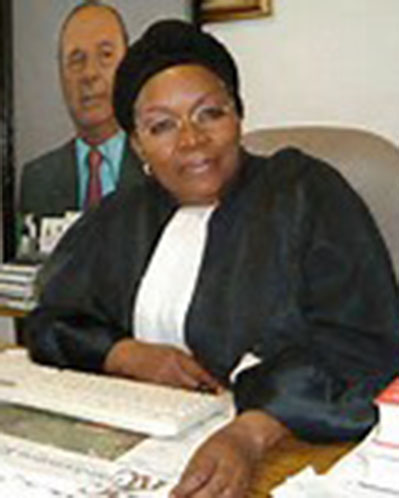
Alice Nkom studied law in Toulouse. Active as a lawyer in Douala for forty-five years, she is at present attached to the prominent firm VABNI. She has attracted international attention by her courageous stance on a wide array of topics. In February of 2008, she was the leading lawyer defending young victims of severe police violence after large scale demonstrations. She is especially well-known for taking up the defense of people accused of homosexual acts. In 2003, she founded ADEFHO (Association pour la Defense de l’ Homosexualité) that offers legal, material, and financial assistance to people prosecuted on homosexuality charges. She has become a rare point of support for an increasing number of people in Cameroun who are in distress because of accusations of homosexuality. She has been awarded several human rights awards.

Professor Andre Mbata Mangu is from the Democratic Republic of Congo. He holds a doctoral (LLD) and a Master's (LLM) degrees in constitutional, public, and international law from the University of South Africa (UNISA) as well as a bachelor’s degree in law (LLB) from the University of Kinshasa (UNIKIN). Prof Mangu has taught at several universities. He is currently a Research Professor in the College of Law at UNISA, Professor at the Faculty of Law of UNIKIN, and Guest Professor at the Faculty Jean Monnet at the University of Paris, Sud. Prof Mangu has coordinated several research projects and published many books, chapters in books, and journal articles. He has delivered papers at numerous international conferences. He also sits on the editorial boards of several international journals. A member of CODESRIA and the African Network of Constitutional Law, he recently received the Chancellor Award for Excellence in Research and the Barney Pityana Award for Research in African Law and Human Rights Law at UNISA. His research focuses on constitutionalism, democracy, elections, human rights and the rule of law with specific reference to the African continent.
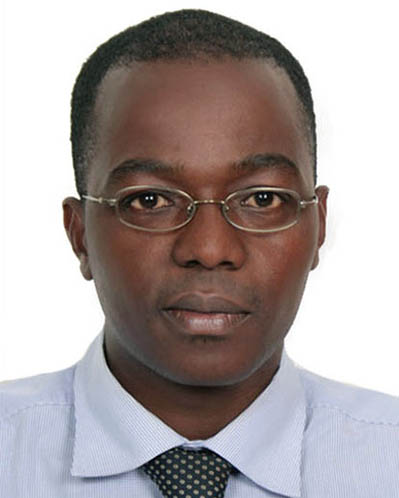
Dr. Célestin Gnonzion obtained his PhD from the Pontifical Gregorian University of Rome in Italy in 2008. He is founder and President of the Ivoirian Network for promotion of Ethics in Society (Réseau Ivoirien pour la promotion de l’Ethique dans la société-RIPES). Former Dean of the School of Moral and Political Sciences of Abidjan, Dr. Gnonzion is a teacher in the Faculty of Information, Communication and Arts, Félix Houphouet-Boigny University in Ivory Coast. He lectures on topics of journalism and ethics such as Ethics of Public Social Communications, Ethics and Deontology in Media and Methods, and Techniques of Social Science. He has published on topics such as the impact of press on democratic processes, ethical decision-making factors of journalists, and Ivory Coast and media freedom.
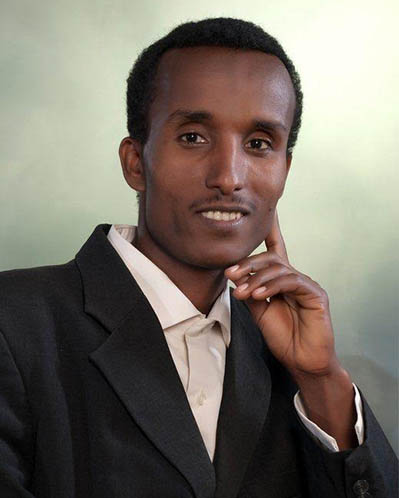
Mohammed Dejen Assen obtained a Bachelor of Arts in History and a Master's of Arts in Federal Studies from Addis Ababa University. He also received an LLB in Law from Mekelle University with Very Great Distinction in 2012. He is currently a PhD Candidate at Addis Ababa University.
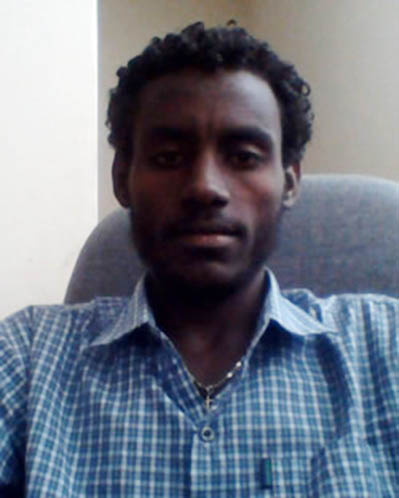
Mr. Endalcachew Bayeh has a BEd in Civics and Ethical Education from Bahir Dar University. He also has an MA in International Relations from Addis Ababa University. Since 2010, he has worked as a lecturer at Ambo University in the Department of Civics and Ethical Studies. In addition to his duties as a university instructor, he has conducted research studies in social science discipline and published more than 10 internationally peer-reviewed articles. His research interests include human rights, gender equality, inter-state conflict, intra-state conflict, traditional conflict resolution mechanisms, hydro-politics, regional cooperation, and human security.
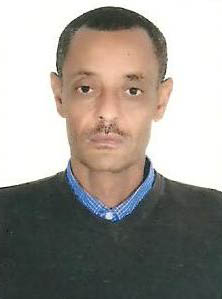
Esubalew Belay Fanta received an MA and a PhD in History from Addis Ababa University. Although a historian by training, his interests include literature, philosophy, and law. His MA thesis is entitled, "A History of the Ethiopian Supreme Imperial Court:1942-1974" (AAU,2007); and his PhD dissertation is titled, "A History of the Ethiopian High Court, & the Role of the British in The Juridical Development of Ethiopia :1942-1974" (AAU,2015). He published the article, "The British on The Ethiopian Bench:1942-1944", in Northeast African Studies (Project Muse, University of Michigan, USA) and has other articles pending publication. Currently, he is a professor of history at Dilla University, Southern Ethiopia.
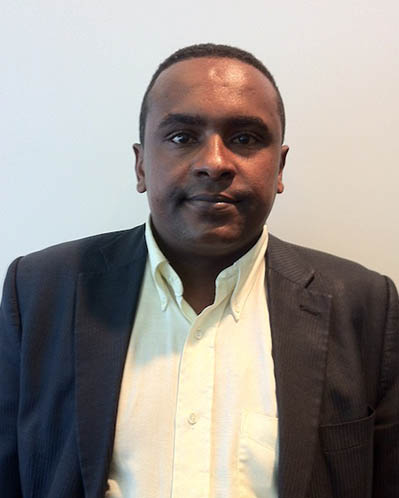
Dr. Solomon Fikre Lemma received his PhD from the University of Warwick, and an LLM from Erasmus University (The Netherlands) as well as an LLB with distinction from Addis Ababa University. Dr. Solomon is currently serving as Assistant Professor and Dean of the College of Law and Governance Studies of Addis Ababa University. Previously, he was an instructor, researcher, and practitioner of law at Hawassa University, Hawassa, Ethiopia. Solomon has also served as Deputy Chairman of the Lawyers’ Association of the SNNPRS (Southern Nations, Nationalities, and Peoples Regional State) in Ethiopia, where he led, directed, and managed the Association in that position between 2007 and 2009. Dr. Solomon has served as a legal advisor, human rights activist, and educator and trainer of law at various international and local NGOs, federal and state agencies, as well as a self-employed consultant and attorney-at-law since October 2002. In these capacities, Dr. Solomon has performed social works, and provided legal advice, human rights advocacy, education, and training for the benefit of vulnerable groups and other members of the community. Dr. Solomon’s research interests include law and development, particularly the role and potential of land, business, and trade laws in tackling poverty and fostering economic development in developing countries like Ethiopia. As a volunteer, Dr. Solomon had served as a UNHCR volunteer at Bonga and Fugnido Camps for Sudanese refugees in western Ethiopia, contributing to his research interest in the protection and treatment accorded to vulnerable groups such as women, children, and refugees under international and Ethiopian laws.
Ahmed Hassan is the Director of the Institute of Ethiopian Studies at Addis Ababa University.
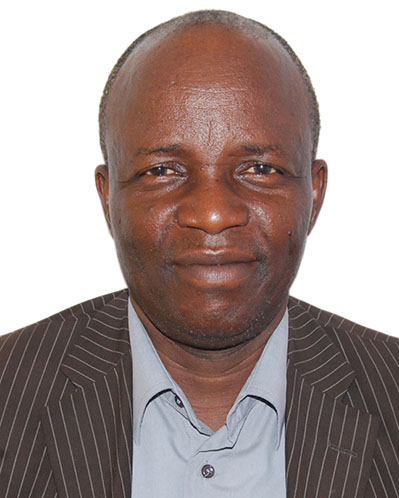
Mégbémado Honoré graduated in History and Geography at the Université Nationale du Bénin. In 1986, he obtained a Certificate of Teaching from the National School for High School Professors in Porto-Novo. He obtained a Master's in Management of Cultural Heritage from the Senghor University of Alexandria in Egypt in 1995. He worked at the Ministry of Culture in the cultural heritage office until 2000. From 2005 to 2007, he was the head of the Historic Museum and then the principal of Memory House in Ouidah. Since 2008, Mr Mégbémado is the Head of the Culture and Communication Department of the National Commission Francophonie of Benin. He is a member of the Steering Committee of the Center for Documentation and Research on Art and Social Sciences (CeDReS) Project in Benin.
Kassa Teklerberhan is Minister of Federal and Pastoralist Development Affairs, Government of Ethiopia.
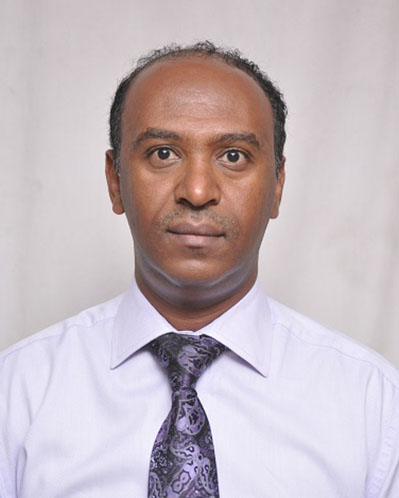
Theodros Assefa Teklu completed a PhD (2013) at the University of Manchester under the supervision of Prof. Graham Ward. Before that, he earned a postgraduate diploma and MA in Biblical and Theological Studies from the Ethiopian Graduate School of Theology (EGST), and a BSc from Addis Ababa University, Ethiopia. His professional experience includes teaching, research, and educational administration. He published his first book, The Politics of Metanoia: Towards a Post-Nationalistic Political Theology in Ethiopia, with Peter Lang Publishers in 2014. Currently, he is serving as lecturer and Head of Academic Affairs at Ethiopian Graduate School of Theology.

Getachew Assefa graduated with an LLB Degree (with Distinction) from Addis Ababa University, Ethiopia (1996), and obtained an LLM Degree from the University of San Francisco, USA (2001), and a PhD in law from the University of Melbourne, Australia (2014). He is the author of numerous publications that have appeared in many national and foreign academic journals including the American Journal of Comparative Law. He is also the author of Ethiopian Constitutional Law with Comparative Notes and Materials: a textbook (Addis Ababa: Master Printing Press, 2012) and Grass-roots Justice in Ethiopia: The Contribution of Customary Dispute Resolution (co-editor with Alula Pankhurst) (Addis Ababa: United Printers, 2008). Currently, he is associate professor and Dean of College of Law and Governance Studies of Addis Ababa University. Dr. Getachew’s areas of research and teaching interest include Ethiopian and comparative constitutional law and federalism, human rights law, law and religion, children’s and women’s rights, administrative law, local governance, Ethiopian and comparative judicial system and dispute settlement, alternative dispute settlement, and traditional (informal) justice systems.
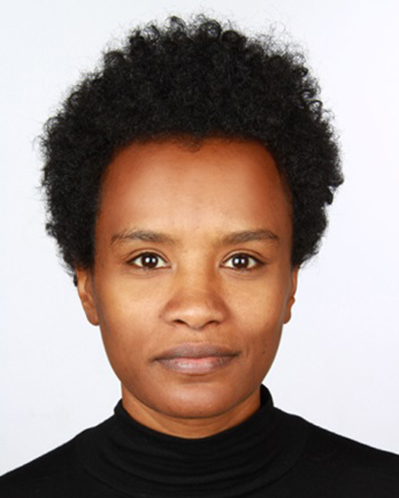
Serawit Bekele Debele is a postdoctoral fellow at the University of Bayreuth where she also completed her doctoral studies in 2015 in the field of religious studies (Religionswissenschaft). Her current research focuses on the interplay of religion and politics in contemporary Ethiopia. She takes an annual thanksgiving ritual known as Irreecha, predominantly celebrated by the Oromo ethnic group, to demonstrate that religion, ethnic identity/nationalism, and state politics are closely intertwined and the understanding of one begs for a closer scrutiny of the other. She also focuses on the interplay of religion and space, media, and gender in Ethiopia.

Abamfo Ofori Atiemo is a senior lecturer and former Head of the Department for the Study of Religions, University of Ghana, Legon. He obtained his PhD from the Free University of Amsterdam after he had studied for the Master of Philosophy and Bachelor of Arts degrees in the Study of Religions at the University of Ghana. He also holds other qualifications from the Institute of Social Studies (ISS) in The Hague and the Trinity College, Legon. He has been a senior fellow at the Indian Institute of Advance Study in Shimla, India; a visiting lecturer at the Kwame Nkrumah University of Science and Technology, Kumasi, Ghana; and a visiting professor at the Faculty of Theology, University of Pretoria, South Africa. He has also been a fellow of the Linnaeus-Palme Exchange Programme at the University of Gavle, Sweden, and a visiting fellow of the African Studies Centre, Leiden, in 2015. He teaches Comparative/History of Religion and his current research interests include Religion and Human Rights; Hinduism in Ghana; Pentecostalism; and Evil and Popular Piety in African Christianity and Islam. Among his recent publications are Unpacking the Sense of the Sacred: A Reader in the Study of Religion (2014), and “Religion and custom are not the same: sacred traditional states and religious human rights in contemporary Ghana” in Law and Religion in Africa–The Quest for the Common Good in Pluralistic Societies (2015).
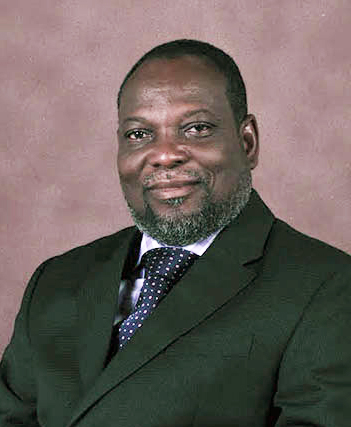
Rev. John Ghartey Esubonteng obtained a Bachelor of Science in Agriculture in 1984 at the University of Science and Technology. In 2005, he changed academic direction to start theological studies at the Regent College of Science and Technology. He is currently a second year PhD candidate at the Department for the Study of Religions, University of Ghana, researching church governance and leadership within Pentecostal Charismatic churches. He is a senior associate minister of the Living Streams International, a Charismatic Church headquartered in Accra, Ghana.

Kofi Quashigah is Dean of the School of Law, University of Ghana. Before joining the University of Ghana, he taught at the University of Nigeria Enugu Campus. He was a Fulbright Scholar at the Harvard Human Rights Program between 2001-2002, and a McArthur Foundation Visiting Scholar at the University of Wisconsin in 1992. His teaching and research interests include constitutional law, human rights, international humanitarian law, jurisprudence, governance, elections law, law and religion, and alternative dispute resolution. He is a member of the General Legal Council of Ghana and on the advisory board of the Ministry of Justice. For several years, he has been President of the Ghana Association of Certified Mediators and Arbitrators.
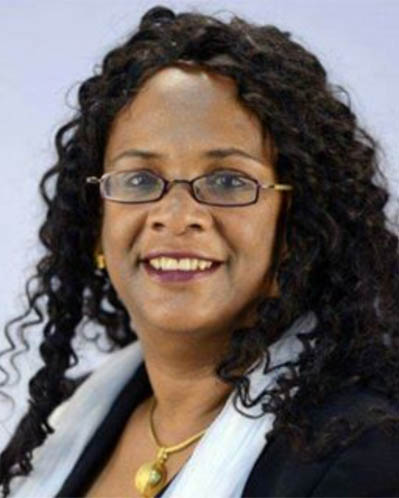
Belaynesh Zevadia, a native of Gondar, Ethiopia, immigrated with her family to Israel when she was 17 years old. She graduated from the Hebrew University of Jerusalem with a bachelor degree in International relations and Africa Studies and a Master’s degree in Anthropology. In 1993, Zevadia began her diplomatic career at the Israel Ministry of Foreign Affairs Cadet Course and served in various positions around the world until she was appointed in 2012 to serve as Israel's Ambassador in Ethiopia - the first Israeli woman of Ethiopian origin to achieve the title of ambassador.
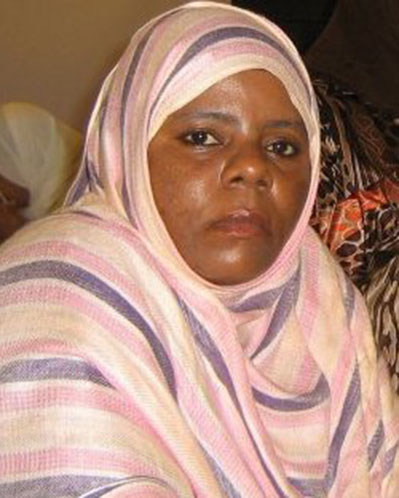
Dr. Esha Faki Mwinyihaji is a lecturer in Islamic Studies and current Chair of the Department of Religion, Theology, and Philosophy at Maseno University, Kenya. Her research interests are Muslim women’s rights and the Shari’a, with a focus on education, inheritance, politics, marriage, and property; religion and politics, inter-religious dialogue, divination, and Islam and human rights. She has written a book on The Persistence of Divination among Swahili Muslims in Kenya.
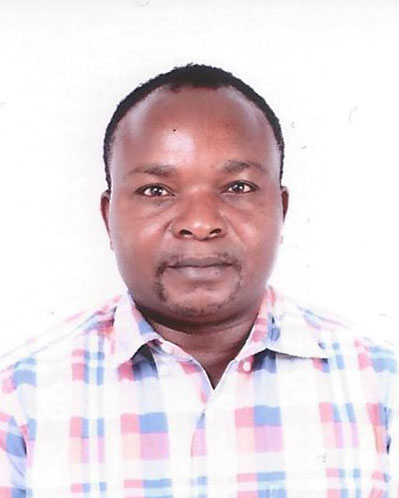
Hassan J. Ndzovu is a senior lecturer in the Department of Philosophy and Religious Studies, Moi University, Kenya. Ndzovu is the author of Muslims in Kenyan Politics: Political Involvement, Marginalization and Minority Status (Northwestern University Press, 2014). His research interests are broadly focused on Islam in sub-Saharan Africa, and they revolve around Islam and politics, religion and law, women religious authority within the Islamic tradition, and religion and sexuality.
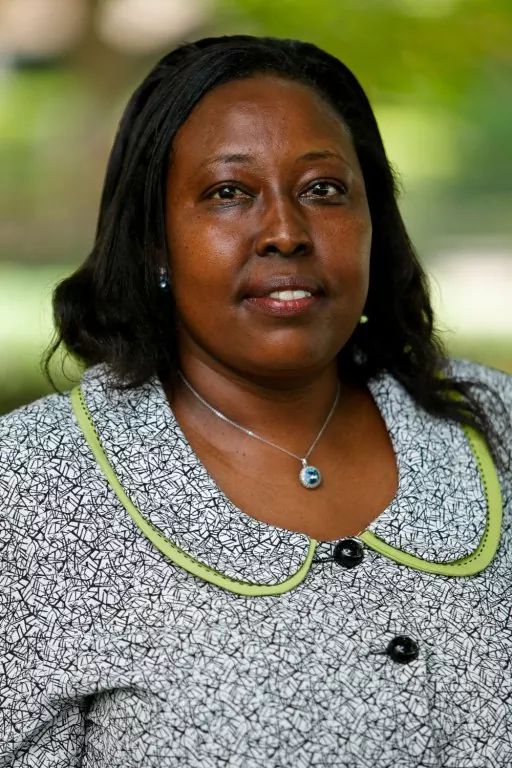
Damaris Seleina Parsitau is a lecturer and a researcher of Kenyan Pentecostalism based at Egerton University, Kenya. She has published more than 20 book chapters and journal articles on Kenyan Pentecostalism. She recently completed her PhD thesis on Neo-Pentecostalism: Its Civic and Public Roles in Kenya (1970-2012). Currently, she is researching Pentecostals and politics, Christian churches, Islamophobia, and the Kadhi court controversy, prophesy and prayer as civic engagement. She was a visiting research fellow at the University of Cambridge, UK, and a visiting fellow at the University of Edinburgh, Scotland, UK.
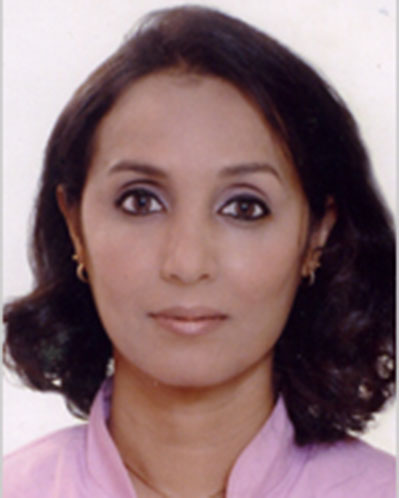
Amal Idrissi is Professor of Law and Political Science at the University of Moulay Ismail in Meknès, Morocco. She previously taught at University Hassan I in Settat, Morocco. She received a National Doctorate in Public Law from Hassan II University in Casablanca. In addition to teaching public law and constitutional law, her research interests and publications focus on women and law in the contemporary Muslim world.
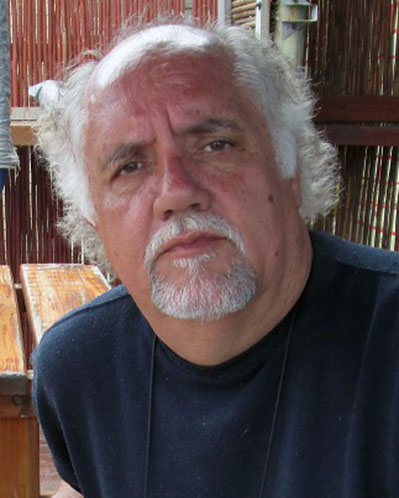
Nico Horn is Professor in Public Law and Jurisprudence at the University of Namibia. He teaches Namibian Constitutional Law and Legal Philosophy. He has published extensively on the Namibian Constitution and Human Rights Law. His latest book on 26 years of the Namibian Constitution with Professor Manfred Hinz will be published later this year, and his PhD dissertation on the interpretation of the Namibian Constitution will be on the book shelves in June. Before joining the University of Namibia, he was a state advocate in the Namibian High Court in the Office of the Prosecutor-General. Nico Horn is also an astute theologian. He taught Biblical Studies and Systematic Theology at the University of the Western Cape in the 1980’s and was the William Paton Fellow at the University of Birmingham in 1992.
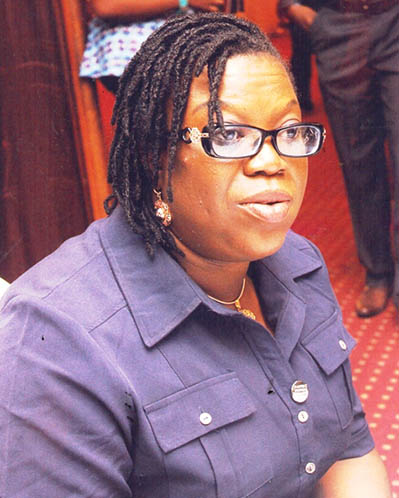
Dr. Abiola Akiyode-Afolabi is a lecturer and faculty of law member at the University of Lagos and Founding Director of Women Advocates Research and Documentation Center (WARDC). She is a leading human rights advocate in Nigeria with specialization in international human rights. She has won several international and national awards for her works on gender equality and her fight for women's rights.
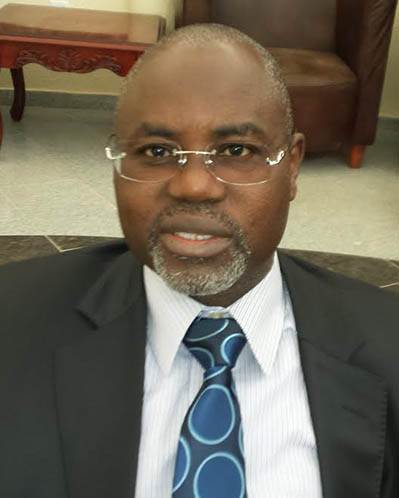
Wahab Egbewole is a legal practitioner and academic. He was called to the Nigerian Bar as a solicitor and advocate on 20th August 1985, and holds a Master’s and PhD in Law. Currently, he is a professor in the Department of Jurisprudence and International Law at the University of Ilorin. He served in various capacities at the University including the office of Sub-Dean, Head of Department, and later as the Acting Dean of Law (2010-2012). He is a member of several learned societies including the American Society of International Law, the International Bar Association, the British Institute of International and Comparative Law, the Law and Society Association Society for Peace Studies and Practice, and the Nigerian Bar Association. He has published widely in the areas of jurisprudence and legal theory, public international law, judicial process, law and development, and has three books in his name including Jurisprudence of Election Petitions by the Nigerian Court of Appeal (LAP Lambert Academic Publishing, Germany). He served in executive positions of many learned societies including the Nigerian Bar Association, and the Academic Staff Union of Universities, and is serving as External Examiner in a few universities across the continent. He was recently appointed as Academic Auditor by the Faculty of Law, University of Cape Coast, Ghana.
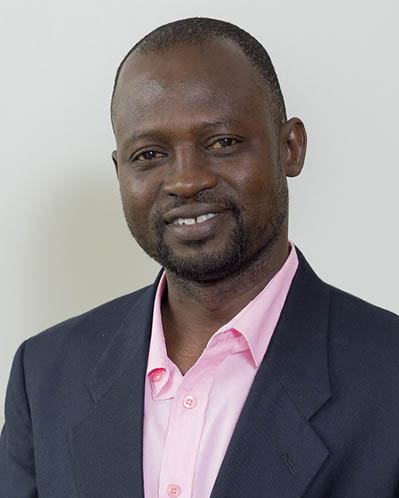
Ahmed Salisu Garba attended the University of Jos, Faculty of Law, earning First and Second Degrees in 2004 and 2011 respectively. Called to the Nigerian Bar in 2005, he now teaches law at the Bauchi State University, Gadau, in Nigeria. A PhD candidate at the Faculty of Law, Bayero University, Kano, Nigeria, he is working on the regulation of religious preaching in Nigeria with a focus on Islamic Preaching Board Laws. He was a visiting scholar at the University of Iowa College of Law in the United States from August–December 2013.
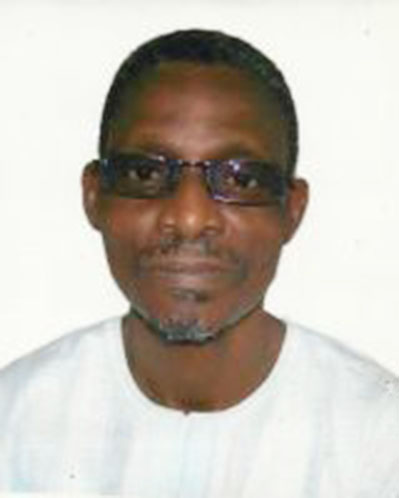
Akin Ibidapo-Obe is Professor and Dean of Faculty of Law, University of Lagos, Akoka, Lagos, Nigeria. He is also Director of the Centre for Human Rights (CHR) in the Faculty of Law. Professor Ibidapo-Obe's involvement with the law and religion movement began when he attended the 21st International Conference on Law and Religion held in Provo in October 2014. His faculty subsequently hosted an International Conference, "Towards Law and Religious Freedom in Africa", with support from Brigham Young University (BYU). Ibidapo-Obe together with his colleagues in several other Nigerian Universities and the Nigerian Bar Association (NBA) branches in Lagos and Ikeja, have formed the Nigeria Association for Law and Religion Studies (NALARS) and the West African Regional Centre for Law and Religion Studies (WARCLARS) to promote teaching and research on law and religion in Nigeria and the West Africa sub-region. NALARS, WARCLARS, ACLARS, ICLARS, and the National Judicial Institute of Nigeria are also collaborating to organize the 1st National Judicial Roundtable on the Intersection Between Law and Religion: World Perspectives in the Nigerian Capital, Abuja on June 20, 2016.
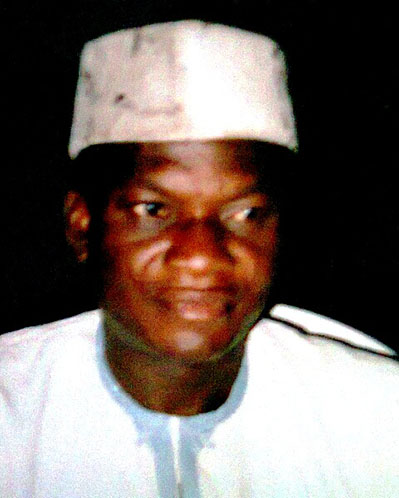
Ismael Saka Ismael was educated at Usmanu Danfodiyo University, Sokoto (LLB and PhD), and Obafemi Awolowo University, Ile-Ife (LLM). He is a barrister and solicitor of the Supreme Court of Nigeria. He was a lecturer at Faculty of Law, Usmanu Danfodiyo University, Sokoto from 1993 to 1998, and since 1998, he has been at the Faculty of Law, University of Ilorin, Ilorin, where he is currently a senior lecturer and Ag. Head of Department, Department of Islamic Law. He has published papers in national and international journals.
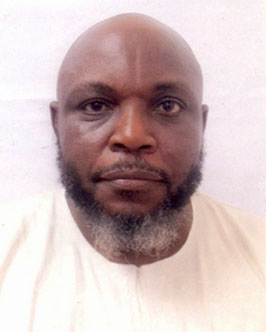
Abdulmumini Adebayo Oba is Professor of Law at the University of Ilorin, teaching Nigerian Legal System, Law and Social Change, and Human Rights. He holds an LLB (Ife), LLM (Ife), and PhD (IIUM). He is enrolled as a solicitor and advocate of the Supreme Court of Nigeria. Previously, he was in private legal practice and has been an officer at the Ministry of Justice. Professor Oba’s research interests are law and human diversity in international and municipal laws with a focus on religion, culture and legal pluralism (Islamic law, customary law and common law). Recent publications include "Religious and Customary Laws in Nigeria", Emory International Law Review; "The Future of Customary Law in Africa" in Fenrich, Galizzi, and Higgins (eds), The Future of African Customary Law; "The Judicial Practice in Islamic Family Law and Its Relation to 'Urf (Custom) in Northern Nigeria", Islamic Law and Society; and "New Muslim Perspectives in the Human Rights Debate" in Frick and Mueller (eds), Islam and International Law: Engaging Self-Centrism from a Plurality of Perspectives.
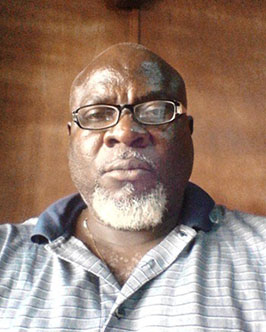
Danoye Oguntola Laguda, PhD, is a scholar of religion with specialization in philosophy of religion. He works in the Department of Religions and Peace Studies, Lagos State University, Ojo, Lagos, Nigeria, where he lectures and does research on the social values of religions, especially those dominant in Nigeria’s religious space. His areas of interest include but are not limited to religion and conflicts, religion and culture, and religion and social institutions. He is a member of America Academy of Religion (AAR) and Africa Association for the Study of Religion (AASR). He has published in several journals of international repute including Journal of Religion in Africa and Journal of Africa and Oriental Studies (JOAS).
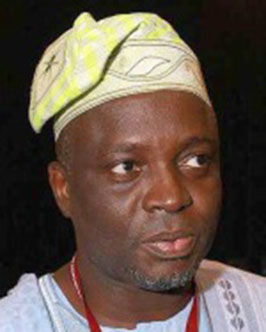
Is-haq Olarewaju Oloyede is Professor of Islamic Studies at the Islamic University of Ilorin. He holds a PhD in Islamic Studies from the University of Ilorin. He is a fellow of the Islamic Academy of Cambridge, United Kingdom; Fellow, Academy of Entrepreneurship; Member, Nigerian Association of Teachers of Arabic and Islamic Studies (NATAIS); Member, Editorial Board, Centre for Islamic Legal Studies, ABU, Zaria, among several others. Between 1995 and 1998, he was National President of the Unilorin Alumni Association, and previously, was a two-time 1st and 2nd National Vice-President of the Association. Prior to his present appointment, he was a member of the University Governing Council; Students’ Disciplinary Committee; Revenue Yielding Committee; Honorary Degree and Monument Committee; Strategic Planning Steering Committee; and Member, Capital Project Implementation Task Force among others. Until his present appointment, he was Director, Academic Planning of the University. In 2005, Prof. Oloyede was appointed co - secretary of the National Political Reform Conference by President Olusegun Obasanjo. Also in 2006, he was appointed a consultant by the National Universities Commission on Educational Reforms in Nigeria. He was Chairman of University of Ilorin Holdings Ltd where he served as Director. He was elected the Vice Chancellor on the 15th October 2007 for a single term of five years. Currently, Prof Is-haq Oloyede is the Executive Secretary of National Inter-Religious Council (NIREC) and also the President of the Association of African Universities (AAU). He has authored and co-authored several articles in reputable local and international outlets.
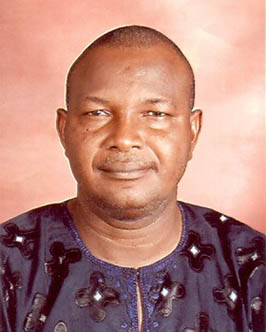
Wahab Kunle Shittu is a lecturer in the Department of Jurisprudence and International Law, Faculty of Law, University of Lagos. He graduated from the Faculty of Law, University of Lagos, in 1986. He also passed his LLM examinations with distinction in 1995. He holds a Master's Degree in Public Administration and International Affairs (MPIA) with distinction from the same university in 2010. He is currently a doctoral research student at the Institute of Advanced Legal Studies (NIALS). He serves as Coordinator for the Centre for Human Rights, University of Lagos.
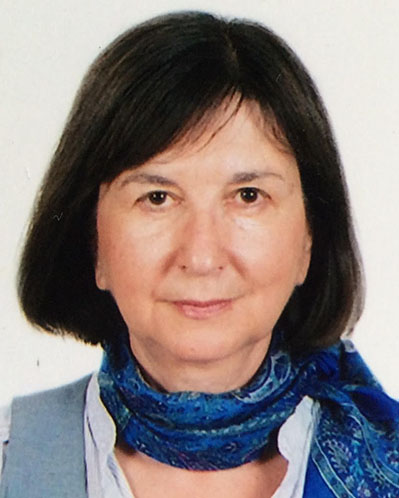
Dr. Bojana Mojsov is an archaeologist, historian, and writer. With a PhD from the Institute of Fine Art, New York University, her career has included working at the Metropolitan Museum of Art and Brooklyn Museum Egyptology Departments in New York before she moved to Cairo as Egyptologist in Residence at the American Research Centre in Egypt. Since then, she has been involved in the restoration of Pharaonic, Islamic, and Coptic monuments in Egypt and supported projects at the National Museum of Sudan, Khartoum. Publications include: Osiris: Death and Afterlife of a God; Alexandria Lost; and Ramesses III (ed. Eric Kline & David O’Connor).
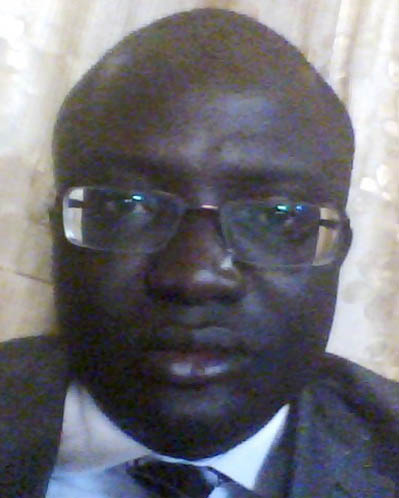
Mouhamadou Moustapha Thioune is Director of Public Liberties in the Ministry of the Interior and Public Security, and a civil training administrator. He holds a PhD in Political Science, an M2 in political science, an M2 in Citizenship, Human Rights, and Humanitarian Action, and a Master of Law degree. He is a Fellow of the National School Administration and previously worked as a clerk. Before becoming a civil servant, he was Head of the Division of Political and Trade Union Affairs. He also coordinates the legal cell of the ministry.
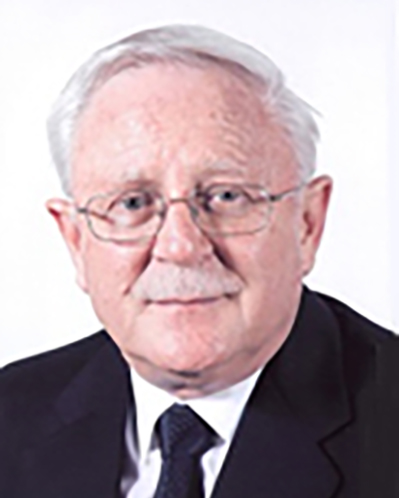
Retired professor of Theology at the University of Stellenbosch, Professor Pieter Coertzen still teaches a course in Comparative Canon Law at the Katholieke Universiteit Leuven every year. He is chairperson of the Unit for the Study of Law and Religion in the Beyers Naudé Centre for Public Theology, Faculty of Theology, University of Stellenbosch, and President of the African Consortium for Law and Religion Studies (ACLARS). He holds seven degrees: BA, BA Hons, and MA in Philosophy (Pothefstroom University for Christian Higher Education); Bachelor of Theology, Licentiate in Theology, and Master of Theology in Ecclesiology, and doctorate degree in Theology (Ecclesiology) (University of Stellenbosch). For the Dutch Reformed Church he has served in many capacities, including Parish Minister, Actuarius, and Church Law Committees. He was Senior Lecturer in Ecclesiology, professor, and Dean of the Faculty of Theology (University of Stellenbosch). He has published 36 articles in NGTT (Nederduitse Gereformeerde Teologiese Tydskrif, of which he has been editor for many years), has written 14 books, and is co-author or editor of more than 30 other publications. Among many honors and activities is Chairman of the Huguenot Memorial Museum in Franschhoek.
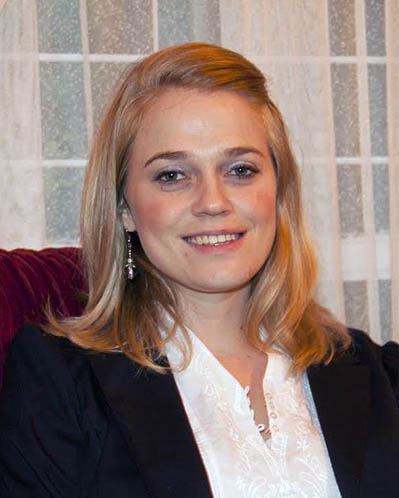
Georgia du Plessis is from South Africa and currently registered as a PhD candidate in “Law and religious freedom within education” at the University of Antwerp in Belgium. Her research is mainly focused on the philosophical aspects surrounding the right to religious freedom: religious institutions and the state, the right to freedom of expression and religious expression, defamation of religion, the position of religion within the public sphere, religious pluralism, liberalism, secularism, and Rawlsianism. She has several international and national publications including the soon to be published “Apartheid, Religious pluralism and the evolution of the right to religious freedom in South Africa”, Journal for Religious History in Australia, and “Freedom of expression and defamation of religion: Mohammedi v SABC 3”, South African Journal on Human Rights, 2015.
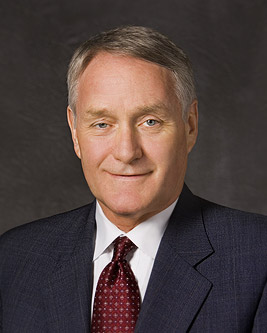
Elder Stanley G. Ellis is a General Authority of The Church of Jesus Christ of Latter-day Saints, currently serving as a member of the First Quorum of the Seventy. Prior to his appointment as a general authority, he served as an Area Seventy in the North America Southwest Area, as an Assistant Executive Director in the Priesthood Department; as a member of the Scriptures Committee; and, as the Sub-Committee Chair on the Boundary Leadership Change Committee. Previously, he was a counselor in the Brazil North and the Brazil Areas, and in many Church callings including president of the Brazil São Paulo North Mission (1999-2002. Elder Ellis graduated from Harvard University in government and received a law degree from the J. Reuben Clark Law School at Brigham Young University. He worked in law and finance and became chief executive officer of a financial consulting company.
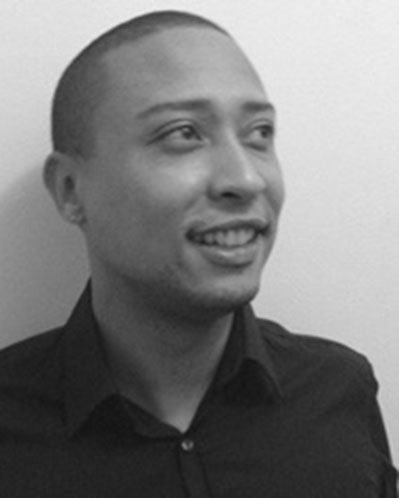
Duane Jethro is a post-doctoral research fellow at the Archive and Public Culture Research Unit, University of Cape Town. He is a PhD graduate of the University of Utrecht. His thesis, entitled Aesthetics of Power: Heritage Formation and the Senses in Post-Apartheid South Africa, looked at relationships between heritage, materiality, aesthetics, and the senses. He has published in journals such as Material Religion, African Diaspora and Tourist Studies.
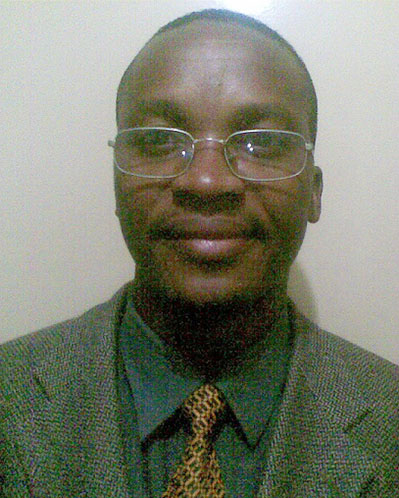
Kizito Kabengele is a research associate and a PhD Candidate in the Department of Public Law at the University of Pretoria, South Africa. He has a Bachelor and a Master's in law degree. He specializes in the area of business and human rights with an emphasis on corporate social responsibilities of extractive industries. His research focuses on the interplay between transnational corporations, the social dimension of regulations, and law reform. He has published a book on elections in South Africa and has written academic law articles. He is also NGOs Deputy-Chairperson for Moshate and Vice-President at Faecas.
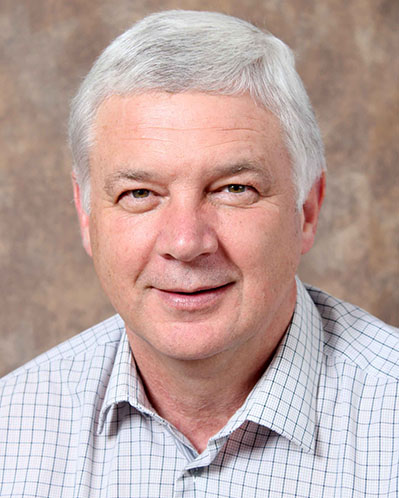
Anton Knoetze began his studies in Theology in 1979 at the University of Pretoria and obtained a BA, BD, and a post-graduate Theological Diploma. He was subsequently ordained as a minister of the Dutch Reformed Church in 1985. In 1994, he completed his DTH (Doctor of Theology) at the University of South Africa in Church History and Canon Law. He became involved with the drafting of the South African Charter of Religious Rights and Freedoms and envisaged, as a member of the continuation Committee, a formal acceptance of the Charter by the South African Parliament. In 2009, he was appointed by the State President of South Africa as a Commissioner of the Chapter Nine Commission (The Commission for the Promotion and Protection of the Rights of Cultural, Linguistic and Religious Communities) and reappointed in 2014 for a second term.
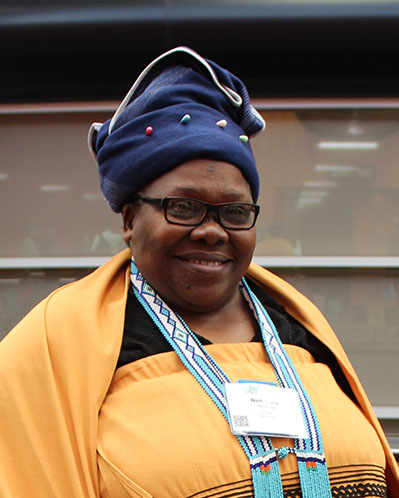
Dr. Nokuzola Mndende received a PhD in Religious Studies. Over the course of her career she has served as Deputy Chairperson, Commission on Traditional Leadership Disputes and Claims, and President of Icamagu Spirituality, a national organization for African Traditional Religion (ATR) in South Africa. She has also worked as a freelance presenter of the ATR at Umhlobo Wenene, the second largest radio station of the South African Broadcasting Corporation (SABC). Dr. Mndende is a lecturer of the ATR and a consultant on all issues regarding religion in Africa.
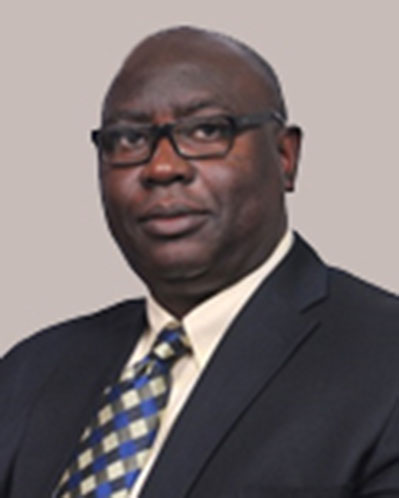
Enyinna Sodienye Nwauche is Associate Professor of Law, University of Botswana. His current research interests include constitutional law in Africa, and law and religion in Africa. He has numerous articles published in peer reviewed journals and a dozen chapters in local and international peer reviewed journals. He is a member of the Executive Committee of the African Network of Constitutional Lawyers, and the Executive Committee of the International Association of Constitutional Law.

Prof. Mary Anne Plaatjies van Huffel teaches Ecclesiology and Church Polity at the University of Stellenbosch. Currently, she serves as the moderator of General Synod of the Uniting Reformed Church in Southern Africa and was chosen in 2013 as the Africa President of the World Council of Churches. She is the holder of two doctorates, namely in Systematic Theology (UNISA) and in Church Polity (University of Pretoria). She has published articles in accredited journals. Amongst Prof. MA Plaatjies van Huffel’s major publications are the following: Control, secede, vested rights and ecclesiastical property; The relevance of Reformed church polity principles: Revisiting the concept.
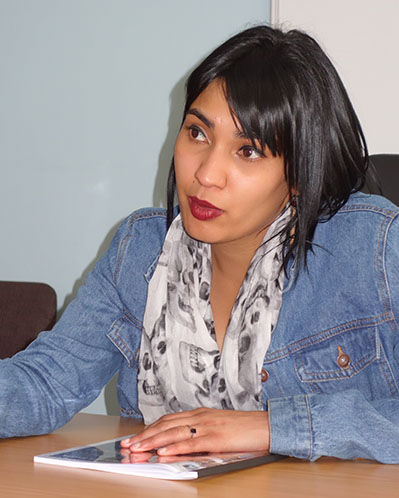
Lee-Shae Logan Scharnick-Udemans is a PhD candidate at the University of Cape Town. She holds a Bachelor in Social Science (Hons) and a Master's in Social Science (Distinction) from the University of Cape Town. Her research interests include religion and public pedagogy, religion and media, religion and politics, religion and law, and critical pedagogy and curriculum design. Her research focuses on the multiple historical and contemporary intersections of the religion, politics, and media triptych. It traces and critically engages with the historical and contemporary role of religion in the political economy of public broadcasting in South Africa.
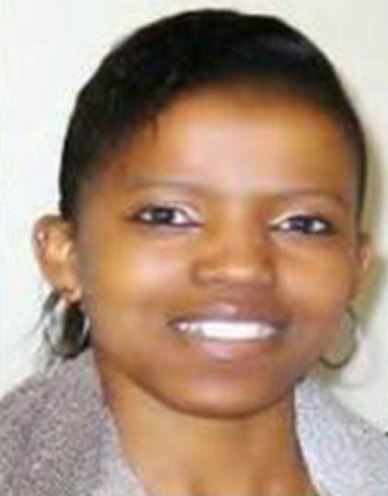
Dineo Skosana is a PhD candidate in the Department of Political Studies at the University of the Witwatersrand. Her project investigates the relationship between the heritage and mineral policy in South Africa, and how both legislations shape local processes and politics of death in a coal mined community located in Witbank, Mpumalanga province. She holds a Master's of Arts qualification in Political Studies with expertise on chieftaincy and local governance in South Africa. She has an interest in research that focuses on indigenous politics, governance, policy, culture, religion and heritage, as well as land claims.
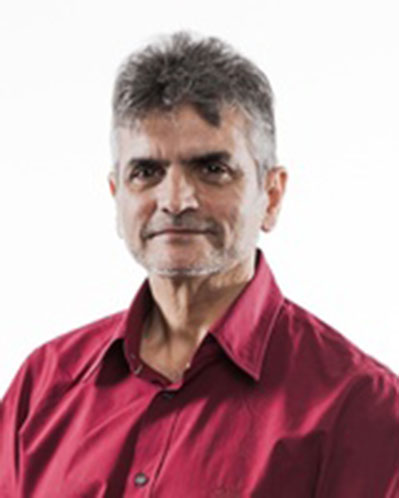
Abdulkader Tayob holds the chair in Islam, African Publics, and Religious Values at the University of Cape Town, South Africa. He has published on Islam in South Africa, modern Islamic thought, and Islam and the history of religions. He has led a number of research initiatives and projects, and convened workshops and conferences locally and abroad. Prof. Tayob obtained his doctoral degree in 1989 from Temple University in the United States. His teaching experience includes Cape Town, Charlottesville (Virginia, USA), Bayreuth, Hamburg and Cologne (Germany), and Nijmegen and Leiden (the Netherlands). His current research is focused on religion education in South Africa, modern Islam, and biographies of religious engagement. He is a widely published author.
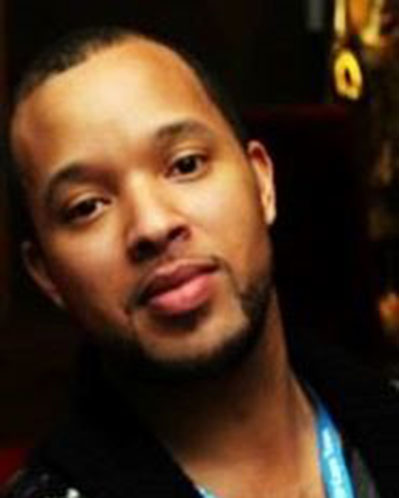
Ra Tiedemann-Nkabinde holds a BA (Hons) in African Studies and the Study of Religions from the School of Oriental and African Studies (SOAS), University of London, and a MSc in African Studies from the University of Oxford. Currently, he is a doctoral candidate in Religious Studies at the University of Cape Town. His research interests lie at the intersection of religious studies, the anthropology of finance, sociology of religion, and African studies. His PhD thesis explores the relationship between religious discourse and economic practices in the emerging Islamic Banking and Finance (IBF) sector in South Africa.
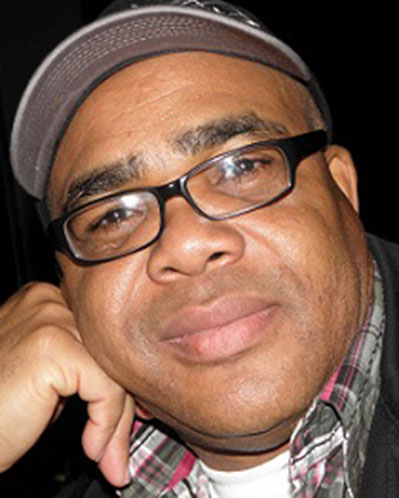
Asonzeh Ukah is a sociologist and historian of religion. He joined the University of Cape Town, South Africa, in 2013. Previously, he taught at the University of Bayreuth, Germany, from 2005 to 2013. He studied at the University of Ibadan, Nigeria, and the University of Bayreuth, Germany. He is the author of A New Paradigm of Pentecostal Power: A Study of the Redeemed Christian Church of God in Nigeria (Africa World Press, 2008) and co-editor of Bourdieu in Africa: Exploring the Dynamics of Religious Fields (Brill, 2016). He is Director of the Research Institute on Christianity and Society in Africa (RICSA), University of Cape Town, South Africa, and Affiliated Senior Fellow of Bayreuth International Graduate School of African Studies (BIGSAS), University of Bayreuth, Germany.
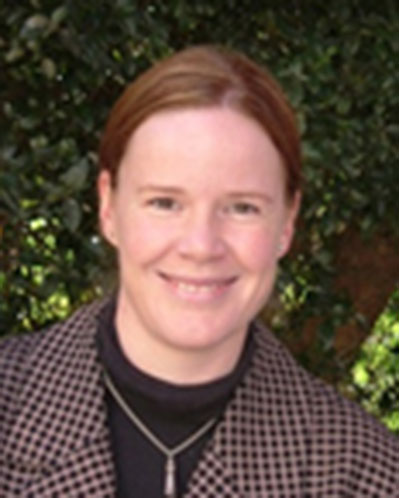
E. Helena van Coller is Senior Lecturer at the Law Faculty of Rhodes University, South Africa, joining the Faculty in July of 2005. Her main field of research is administrative law. She obtained LLB and LLM degrees from the University of the Free State, and an LLM from the University of Utrecht, The Netherlands. In 2004, she was admitted as an advocate. She submitted her LLD on the topic of Administrative Law and Religious Organisations in 2012. She is a member of the International Consortium for Law and Religious Studies (ICLARS).
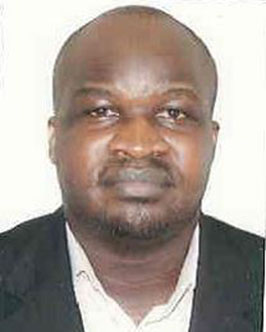
Stephen Okello has a Bachelor of Laws (LLB), a Post Graduate Diploma in Legal Practice, a Master’s in Public International Law, and is currently pursuing a Post Graduate Diploma in Public Administration and Management. He works with the Ministry of Internal Affairs as the Acting Executive Director, National Bureau for NGOs. He was involved in the process of developing the NGO Act (2016), National NGO Policy (2010), and the NGO Registration Regulations (2009). He is currently a member of the National Task Force developing the National Faith Based Organisations (FBOs) Policy.
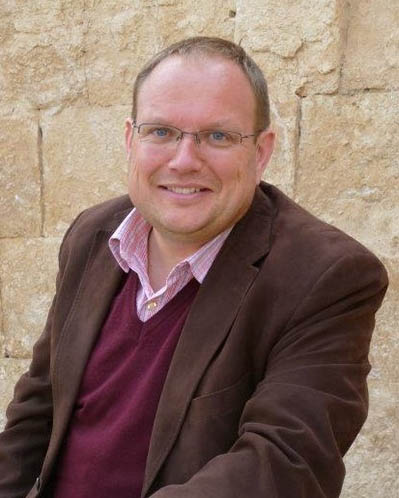
Mark Hill QC is a barrister specialising in ecclesiastical law and religious liberty. He has represented clients in the UK Supreme Court and the European Court of Human Rights. He is a recorder on the Midland Circuit (sitting in criminal, civil and family cases) and Deputy Judge of Upper Tribunal, Immigration and Asylum Chamber. He sits as judge in ecclesiastical courts of the Church of England and is Visiting Professor at Cardiff University’s Centre for Law and Religion (United Kingdom), at University of Pretoria in South Africa, and at the Dickson Poon School of Law at King’s College, London. Publications include Magna Carta, Religion and the Rule of Law, Religion and Law in the United Kingdom, Religion and Discrimination Law in the European Union, Ecclesiastical Law, Religious Liberty and Human Rights, and English Canon Law. He is a Consultant Editor of the Ecclesiastical Law Journal and a member of the Editorial Boards of the Oxford Journal of Law and Religion and the Revista General de Derecho Canónico y Derecho Eclesiástico del Estado. He is Ecumenical Fellow in Canon Law at the Venerable English College in Rome, and a former President of the European Consortium for Church and State Research. He is an accredited mediator, current co-chair, and a founder of BIMA, a charity which promotes faith-based mediation.
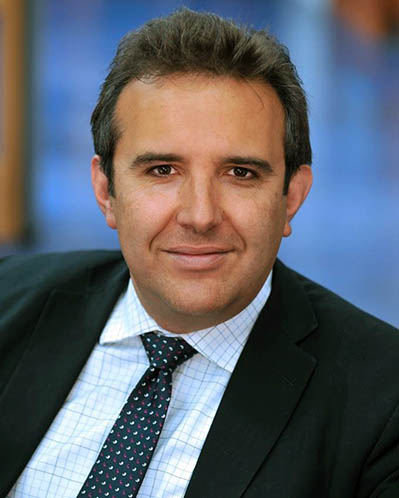
Dr. Peter Petkoff is a law lecturer at the Brunel Law School. He is also Director of the Religion, Law and International Relations Programme, a collaborative international research network at Regent's Park College, Oxford, in which capacity he brings together lawyers, theologians, philosophers, and social and political scientists, to develop innovative interdisciplinary strategies for studying law, religion and international relations from legal and theological perspectives. He is Legal Consultant on Media Freedom and Freedom of Expression for the Representative on Freedom of the Media at the Organisation for Security and Co-operation in Europe, a TEPSA consultant of the European Parliament, as well as a consultant for the All Party Parliamentary Group on International Freedom of Religion or Belief at the House of Lords. He is Managing Editor of the Oxford Journal of Law and Religion. He is writing a book for Oxford University Press on Holy Sites under International Law and has recently edited (together with Malcolm Evans and Julian Rivers) the volume The Changing Nature of Religious Rights under International Law. His work – engaging with academics, lawyers, religious leaders and think tanks working in the field of religion and public life – has had impacts on policy makers and on the ways religious communities articulate their public self-perception and their attitude to law, civic values, secularism, and to their own internal normative systems.
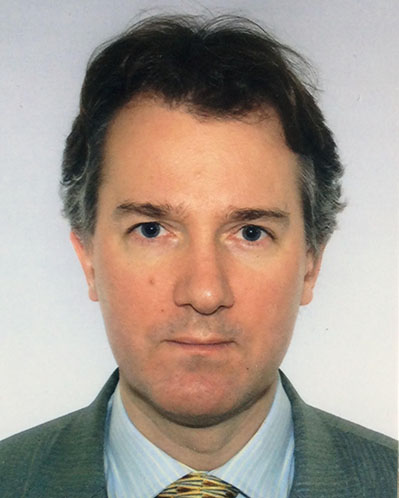
Julian Reilly is a British diplomat, born in Mauritius. Attending the conference in a private capacity, he has recently been appointed the Somalia Director at the Foreign and Commonwealth Office, and is based in London. Much of his career since 1993 has been concerned with African and Middle Eastern affairs, and has included postings in Egypt, Sudan, Kenya and Saudi Arabia. He has also been engaged more recently on the significance of religion and culture in foreign policy.
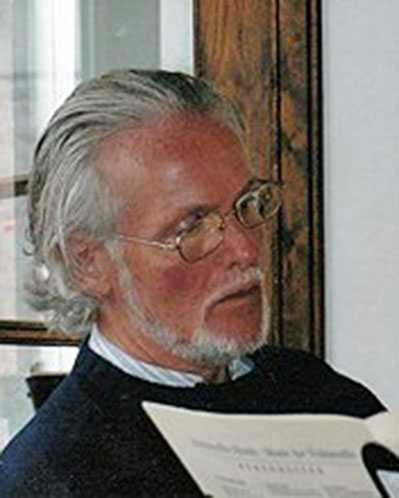
Bruce Wannell is a writer, linguist, and lecturer who has spent many years travelling in Iran, Afghanistan, Pakistan, Arabia and eastern Africa. A graduate of Oriel College Oxford, he lived for two years in Isfahan during the Revolution, where he taught at Isfahan University, and then later travelled extensively in the Middle East. Bruce speaks Arabic, Persian, and several European languages. Bruce has a wide experience of the Middle East and has a deep affinity with Islamic culture. He has lectured widely on Persian and Islamic history, culture, and even cuisine and as a result, is in demand as a tour leader. Now based in York, Bruce is currently writing about his experiences in the Islamic world and translating Persian mystical poetry, as well as pursuing his interests in music.
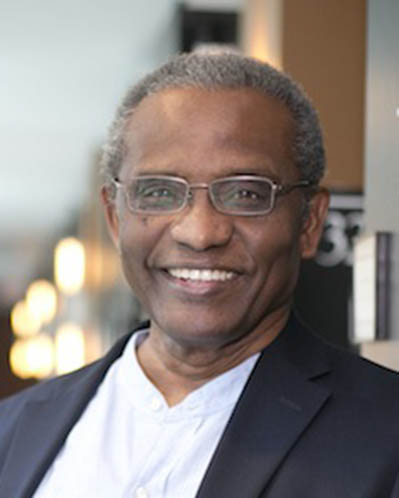
Abdullahi Ahmed An-Na'im (from Sudan) is the Charles Howard Candler Professor of Law at Emory Law, associated professor in the Emory College of Arts and Sciences, and Senior Fellow of the Center for the Study of Law and Religion of Emory University. An internationally recognized scholar of Islam and human rights and human rights in cross-cultural perspectives, Professor An-Na'im teaches courses in international law, comparative law, human rights, and Islamic law. His research interests include constitutionalism in Islamic and African countries, secularism, and Islam and politics. Professor An-Na'im directed research projects which focus on advocacy strategies for reform through internal cultural transformation. Professor An-Na'im's current research projects include a study of Muslims and the secular state, and of human rights from state-centric to people-centered. He continues to further develop his theory of Islam and the Secular State (Harvard University Press, 2008), also published in Arabic and Indonesian. Professor An-Na’im has written several books and more than 60 articles and book chapters on human rights, constitutionalism, and Islam and politics in African and Islamic countries. He received his PhD in law from the University of Edinburgh.
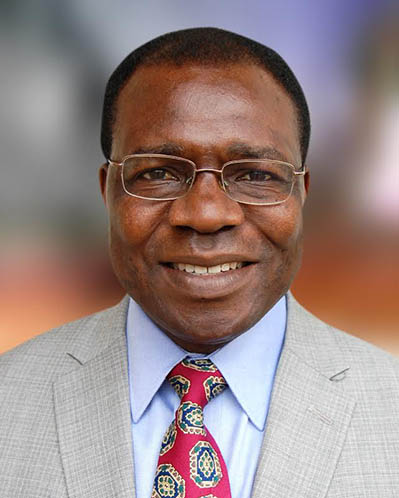
Elias Kifon Bongmba holds the Harry and Hazel Chair in Christian Theology and is Professor of Religion at Rice University. His research interest includes African Religions and contemporary theology and ethics. His book, The Dialectics of Transformation in Africa, won the Frantz Fanon Prize in Caribbean Thought. He recently edited the Routledge Companion to Christianity in Africa and is currently writing a book on homosexuality and the church in Africa.
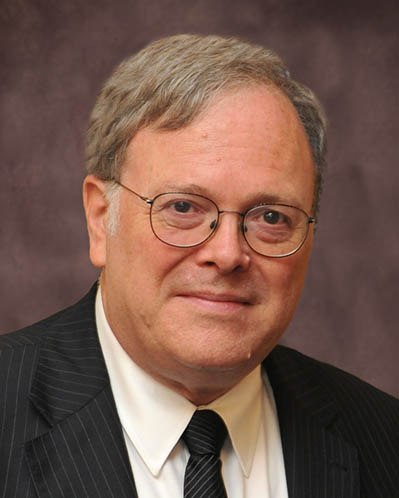
Cole Durham is Founding Director of the International Center for Law and Religion Studies, Brigham Young University. He is a graduate of Harvard College and Harvard Law School, where he was a Note Editor of the Harvard Law Review and Managing Editor of the Harvard International Law Journal. He has been heavily involved in comparative law scholarship, with a special emphasis on comparative constitutional law. He is President of the International Consortium for Law and Religion Studies (ICLARS), based in Milan, Italy, and a Co-Editor-in-Chief of the Oxford Journal of Law and Religion. He served as the Secretary of the American Society of Comparative Law from 1989 to 1994. He is an Associate Member of the International Academy of Comparative Law in Paris—the premier academic organization at the global level in comparative law. He served as a General Rapporteur for the topic "Religion and the Secular State" at the 18th International Congress of Comparative Law held in July 2010. He served in earlier years as Chair both of the Comparative Law Section and the Law and Religion Section of the American Association of Law Schools.
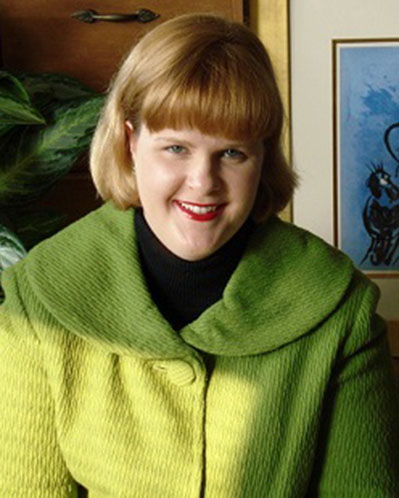
M. Christian Green is a senior fellow at the Center for the Study of Law and Religion and an editor at the Journal of Law and Religion at Emory University. She taught religious ethics at DePaul University, Harvard Divinity School, and the Candler School of Theology at Emory. She is a visiting research fellow at the University of Notre Dame’s Kroc Institute for International Peace Studies, researching issues of religion, rights, and identity during the 2010-2011 academic year. Her general research interests include law and religion, human rights, feminism and the family, religion and world affairs, and global ethics.
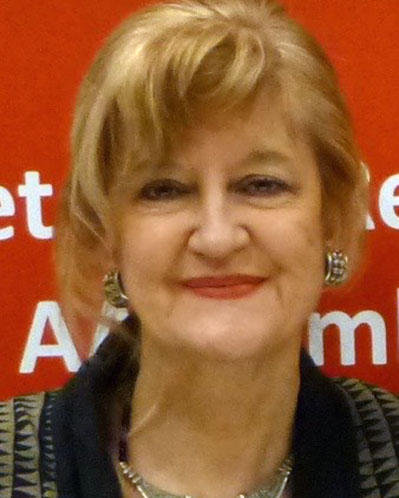
Rosalind I. J. Hackett is Professor and Head of Religious Studies and adjunct in Anthropology at the University of Tennessee, where she was a Distinguished Professor in the Humanities. Prior to receiving her PhD in Religious Studies from the University of Aberdeen, Scotland, she taught at Nigerian universities, spent a year as Liberal Arts Fellow in Law and Religion, Harvard Law School, and Senior Fellow, Center for the Study of World Religions. She was a Rockefeller Research Fellow at the Kroc Institute of International Peace Studies at the University of Notre Dame and was appointed a Mellon Fellow at the University of Cape Town in Religious Studies. She has published widely on religion in Africa. She is President of the International Association for the History of Religions and the co-founder of the IAHR Women Scholars Network. She was a founding member of the African Association for the Study of Religions, has served as President of the North American Association for the Study of Religions, is part of the founding steering committee of the African Consortium on Law and Religion Studies, founder/coordinator of the Jazz for Justice Project and the UT Gulu Study and Service Abroad Program in northern Uganda.
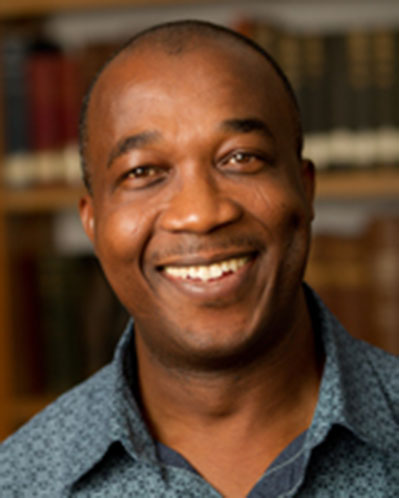
Simeon Ilesanmi received his PhD from Southern Methodist University and his JD from Wake Forest University School of Law. He teaches courses in comparative ethics, international human rights, religion and law, ethics of war and peace, and African religions. He is the author of Religious Pluralism and the Nigerian State (Ohio University Press, 1997) and numerous articles and book chapters on African religion, ethics, war and politics. He is an Associate Editor of Journal of Religious Ethics and serves on the editorial boards of several other learned journals. His current and ongoing research interests focus on human rights, ethics of war, and religion, law and politics in Africa.
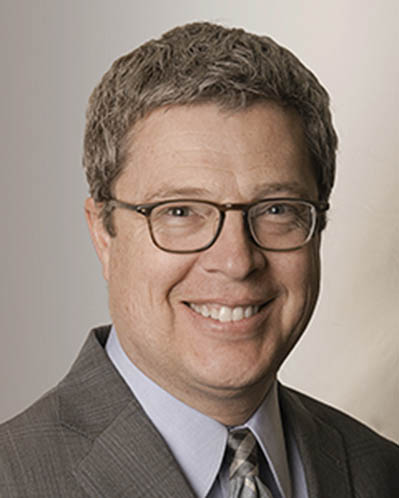
Brett Scharffs is Francis R. Kirkham Professor of Law at Brigham Young University’s J. Reuben Clark Law School, associate dean for faculty and curriculum, and associate director of the International Center for Law and Religion Studies. His teaching and scholarly interests include international and comparative law and religion. He is a graduate of Georgetown University, where he received a BSBA in international business and an MA in philosophy. He was a Rhodes Scholar at Oxford University, earning a BPhil in philosophy. He received his JD from Yale Law School, where he was senior editor of the Yale Law Journal. For the past eight years he has been a visiting professor at Central European University in Budapest, teaching comparative law and religion. For the past several years he has helped organize a certificate training program in religion and the rule of law at Peking University Law School’s Center for Administrative and Constitutional Law, and a similar program in Vietnam at the Vietnam National University’s University of Social Sciences and Humanities in Hanoi and Ho Chi Minh City. He has also taught and helped organize programs at several Indonesian universities on sharia and human rights, and has taught law and religion as a visiting professor at the University of Adelaide School of Law in Australia. Professor Scharffs has written more than 100 articles and book chapters and has made more than 300 scholarly presentations in 30 countries. His casebook, Law and Religion: National, International and Comparative Perspectives (coauthored with W. Cole Durham Jr.), has been translated into Chinese and Vietnamese, with Turkish and Burmese in process, and is scheduled for a second English edition in 2016.
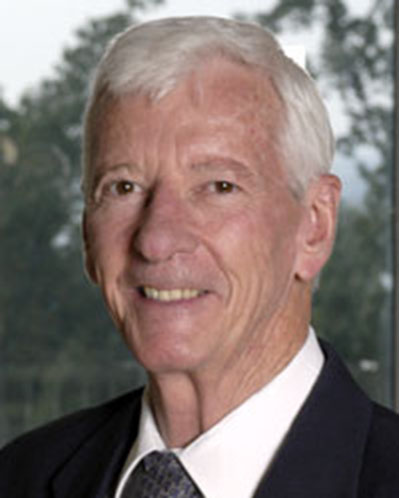
Johan van der Vyver is IT Cohen Professor of International Law and Human Rights, Emory University, and Extraordinary Professor in the Department of Private Law of the University of Pretoria. Formerly, he was Professor of Law at the University of the Witwatersrand, Johannesburg and the Potchefstroom University for Christian Higher Education in South Africa. He served as the Human Rights Fellow of The Carter Center from 1995-1998. Current teaching obligations comprise Public International Law, International Human Rights, International Criminal Law, International Humanitarian Law, and a seminar on Comparative Bills of Rights, and one on Implementation of International Law in the United States. He holds the degrees of Bachelor of Commerce, Bachelor of Laws, Honours Bachelor of Arts in Philosophy (Potchefstroom University); Doctor of Laws (University of Pretoria); and the Diploma of the International and Comparative Law of Human Rights (International Institute of Human Rights, Strasbourg). Prof. van der Vyver was awarded the Doctor of Laws degree (honoris causa) by the University of Zululand in 1993, and the Doctor of Laws degree (honoris causa) by Potchefstroom University in 2003. The author of eleven books and monographs and close to 300 chapters in books, law review and other articles, and book reviews, his research interests and publications include human rights, international criminal law, and a great variety of other subject-matters.
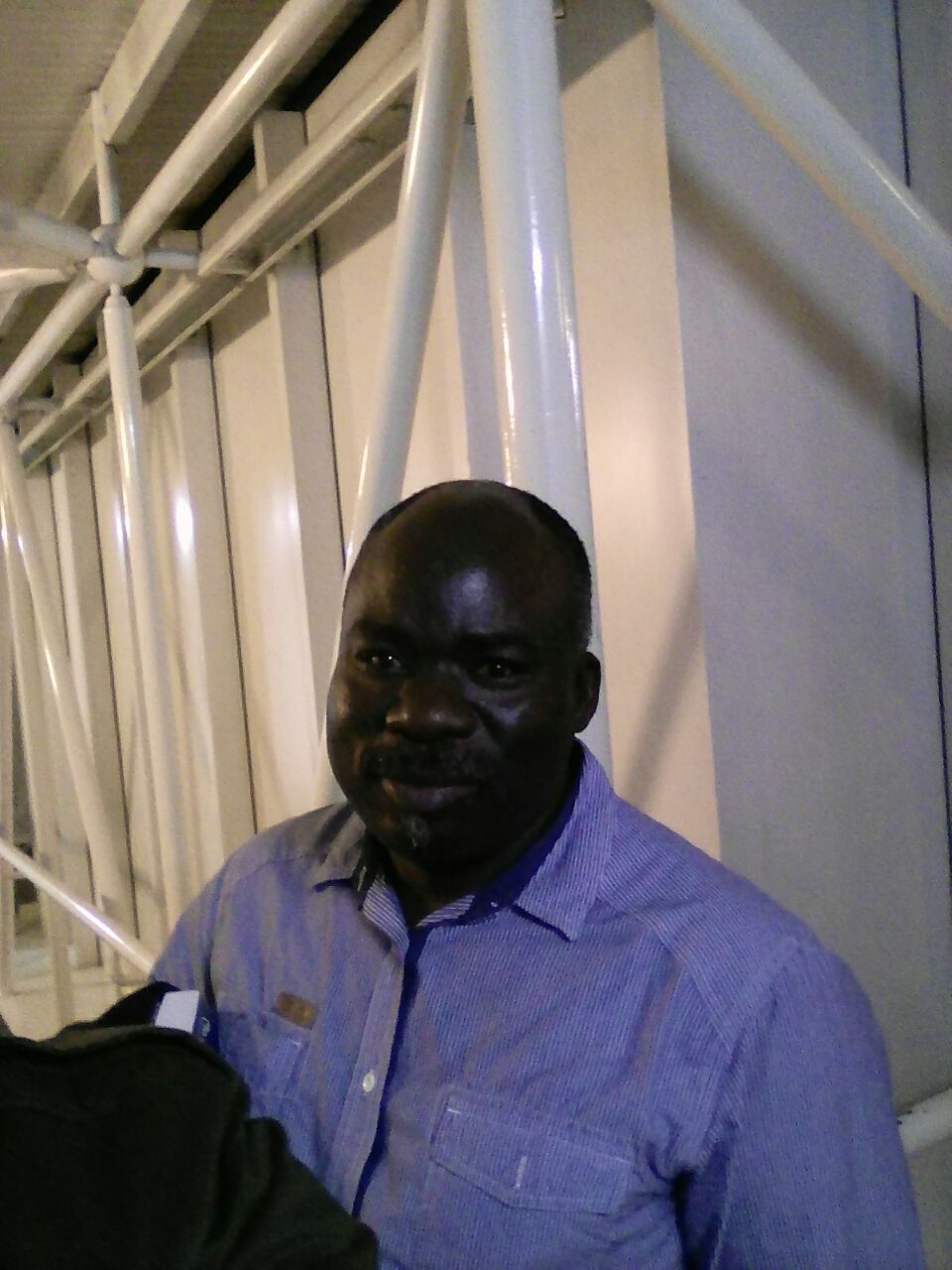
Edmore Dube is a lecturer in Islamic Studies in the Department of Philosophy and Religious Studies at Great Zimbabwe University. His research interests include religion and ethics, particularly how religious institutions can impact positively on public health, business and human rights. He is particularly interested in the interrogation of theological positions with the intention of envisioning a better world order informed by interreligious dialogue. He received a BA General in English and Religious Studies (1992), a BA Special Honours in Religious Studies (1993), a Master's in Islamic Studies (1995) and a DPhil in Christian-Muslim Dialogue (2003) from the University of Zimbabwe.
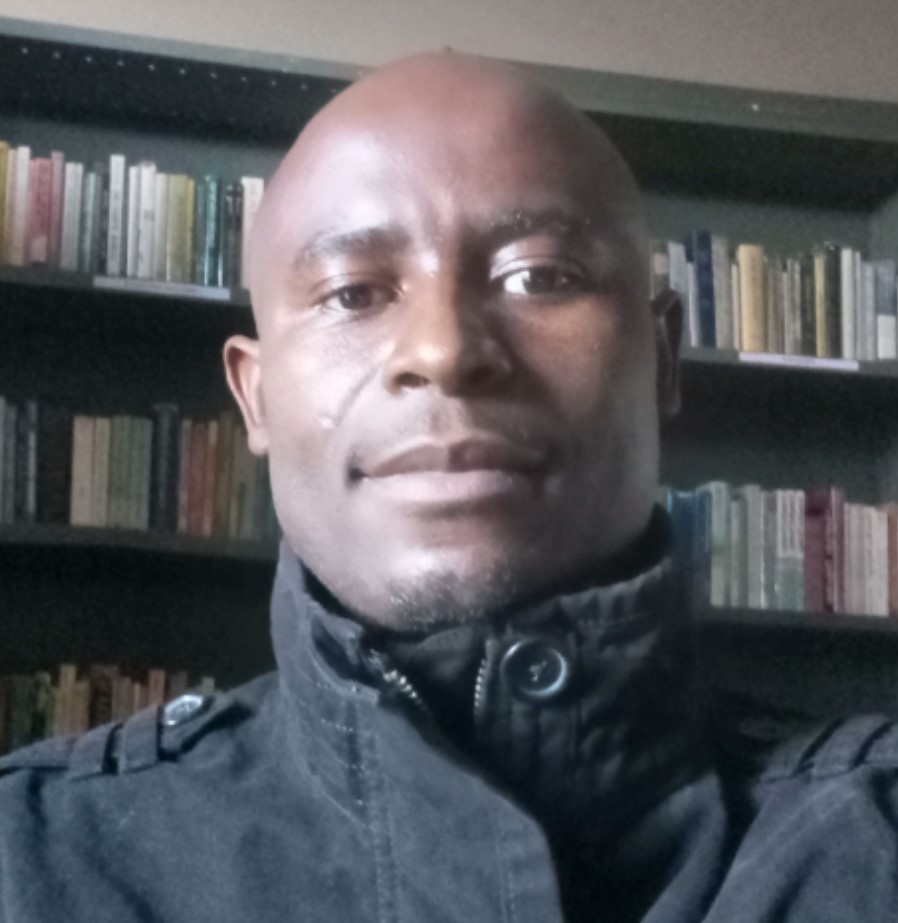
Bernard Pindukai Humbe is a lecturer in the Department of Philosophy and Religious Studies in Joshua Nkomo School of Arts and Humanities at Great Zimbabwe University, Masvingo. He is a PhD candidate with the University of KwaZulu-Natal. His areas of research interest include but are not limited to: Symbolism of Domestic Animals in African Indigenous Religion, Traditional Law and Social Development, Religion and Entrepreneurship, Religion and Social Transformation, Religion and the Marginalised and Religion and Power.
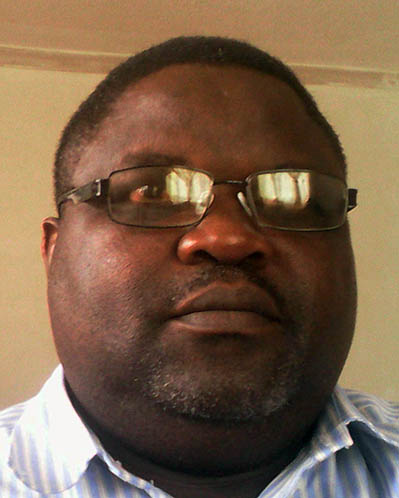
Tobias Marevesa is a New Testament scholar in the Department of Philosophy and Religious Studies, Joshua Nkomo School of Arts and Humanities, Great Zimbabwe University, where he teaches New Testament Studies and New Testament Greek. He is pursuing doctoral studies at the North-West University in South Africa. His areas of interest are Bible and politics, Pentecostal expressions in Zimbabwean Christianity, culture, human rights, and gender-based violence. He has also published in the area of Bible and conflict-resolution in the Zimbabwean political landscape.
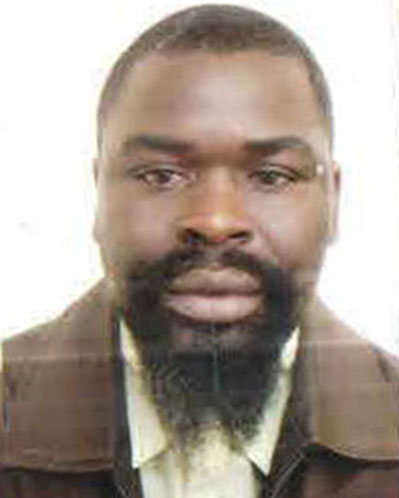
Tapuwa Raymond Mubaya is a Lecturer at Great Zimbabwe University, Faculty of Culture and Heritage. Before joining Great Zimbabwe University, Mr. Mubaya worked for National Museums and Monuments of Zimbabwe for eight years as the Senior Curator of Archaeology and Head of the Great Zimbabwe Conservation Centre. Mr. Mubaya holds a Master's of Arts Degree in Heritage Studies from the University of Zimbabwe. He is also a member of the Association of Southern African Professional Archeologists (ASAPA) and the Zimbabwe Association of Professional Archaeologists and related Disciplines (ZAPAD). His research interests are focused on heritage management and conservation, cultural tourism and museums.
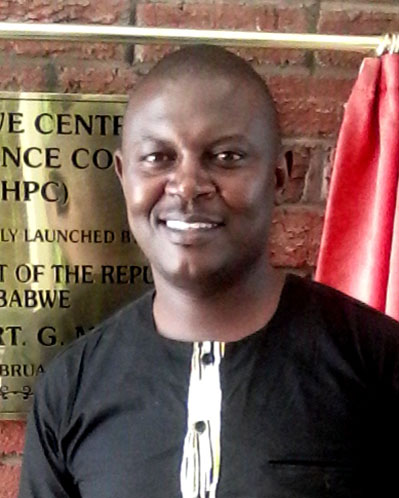
Prosper Muzambi is a lecturer of theologies at Great Zimbabwe University, Joshua Nkomo School of Arts and Humanities, in the Department of Philosophy and Religious Studies. He is interested in fusing Indigenous Knowledge Systems in the discourse of Theology and Development as well as unpacking the role of religion in transforming society. Prosper is currently reading for a Doctor of Philosophy in Theology and Development with the University of KwaZulu Natal, South Africa. His thesis is a proposal for a theologically informed responsible citizenship for Zimbabwe.
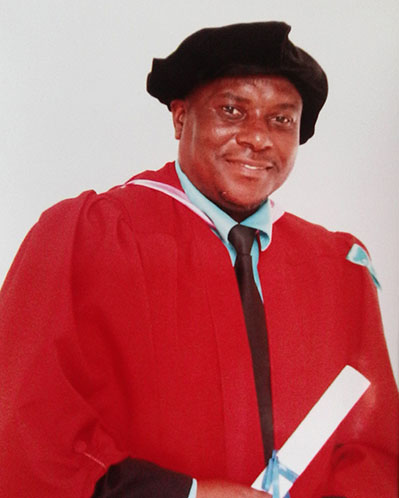
Fortune Sibanda lectures in the Department of Philosophy and Religious Studies, Great Zimbabwe University, Masvingo. He has published many articles in refereed journals, and written book chapters on various themes from a religious perspective such as new religious movements, land, indigenous ways of knowing, human rights issues, and the environment in the African context. Among other platforms, Sibanda attended and presented papers at the second and third African Consortium of Law and Religion Studies (ACLARS) conferences.
